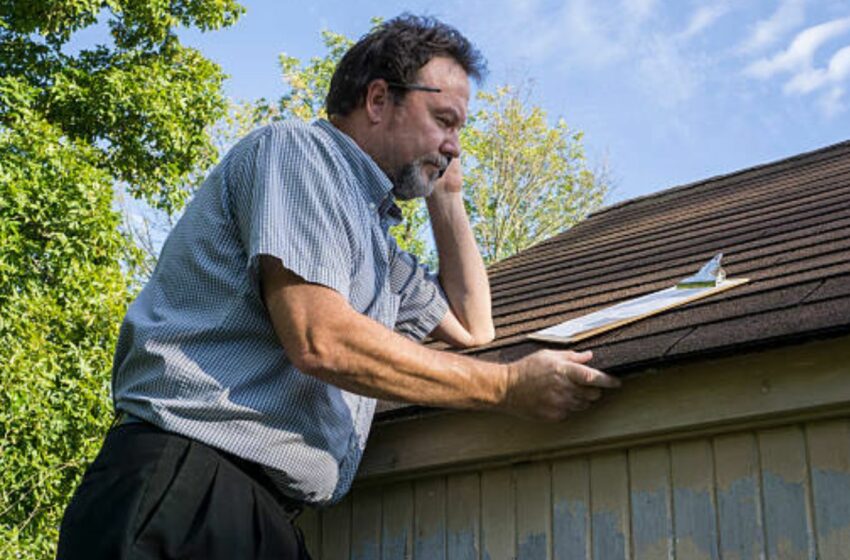
Loans for Home Repairs for Bad Credit: How to Actually Get Approved
If you have bad credit and your home is in need of repairs, it can be a daunting situation. This is because many traditional lenders require good credit in order to be approved for a loan. However, there are options available for those who need loans for home repairs but have bad credit.
One option is a personal loan for home repairs. These loans are typically unsecured, meaning you don’t have to use your home as collateral. While lenders will still consider your credit score, they may be more lenient than traditional lenders. It’s important to compare rates and terms from multiple lenders to find the best option for you.
Another option for loans for home repairs for bad credit is a government-backed loan. The Federal Housing Administration (FHA) offers a program called Title 1 that allows borrowers to finance home repairs with a fixed-interest rate and term of up to 20 years. This option may be more accessible for those with bad credit, but it’s important to note that there are limits to the amount that can be borrowed.
Overall, it’s important to explore all of your options when seeking loans for home repairs for bad credit. While it may take more effort and research, there are lenders and programs available that can help you address your home repair needs.

Loans For Home Repairs For Bad Credit
If you’re a homeowner with bad credit, finding a loan to cover home repairs can be stressful. It can seem like a catch-22 situation where you need to repair your home to increase its value, but you need a loan to cover the cost of repairs, and your bad credit keeps you from getting approved for that loan. Fortunately, there are still lenders who are willing to work with homeowners who have bad credit.
Here are some ways to obtain loans for home repairs even with bad credit:
- Look for lenders who specialize in bad credit loans – Some lenders specifically work with individuals who have poor credit. These loans will likely have higher interest rates, but they can be a good option when you have no other alternative.
- Consider a secured loan – A secured loan permits the lender to take possession of an asset of yours if you default, such as your house or car. Because there’s less risk involved, you might be able to obtain a secured loan at a lower interest rate than an unsecured loan.
- Obtain a co-signer – Look for someone with better credit who can co-sign on the loan with you. This will increase the likelihood of your loan being approved while also offering a lower interest rate.
- Check for government assistance – There are various government programs available that offer financial assistance to homeowners, such as grants and loans, to help with home repairs and renovations.
- Build up your credit – If securing a loan for home repairs isn’t urgent, consider taking some months to try and improve your credit score. Credit repair services can help you identify areas in which you can improve and work with you to dispute any errors in your credit report.
Overall, obtaining loans for home repairs for bad credit can be challenging, but it’s not impossible. With a bit of patience and the proper research, you’ll find lenders who will assist you in making the necessary repairs to your home, no matter what your credit score is.
Alternative Options for Financing Home Repairs for Those with Poor Credit:
As someone who has struggled with bad credit, I am all too familiar with the difficulties of securing loans for home repairs. But all hope is not lost! Here are some alternative options for financing those necessary home repairs, even with bad credit.
- Personal Loans: Rather than opting for a traditional bank loan, consider pursuing a personal loan from an online lender. These lenders often have lower credit score requirements and can provide funding quickly. However, keep in mind that these loans may come with higher interest rates.
- Home Equity: If you’ve been paying your mortgage off for a while, you may have built up equity in your home. That equity can be used to secure a home equity loan or line of credit, which can be used to finance necessary repairs.
- Credit Cards: Although they are not an ideal option, credit cards can be used for home repairs. You’ll likely want to use a credit card with a no- or low-interest introductory period, but be sure to pay off the balance before that period ends to avoid high interest rates.
- Government Assistance Programs: Depending on where you live, there may be government programs available to assist with home repairs for low-income or disabled individuals. Do some research to see if any of these programs are available in your area.
- Community Development Financial Institutions (CDFIs): Many community-based organizations function as CDFIs, which means they offer affordable loans to individuals and families in need of financial assistance. These loans can be used for a variety of purposes, including home repairs.
Remember, just because you have bad credit doesn’t mean that you can’t finance necessary home repairs. Explore these alternative options and find the best strategy to help you secure the funds you need.
